Opinion
57th anniversary Of the Ordination Of late Reverend Father Gerald Crispin Leo
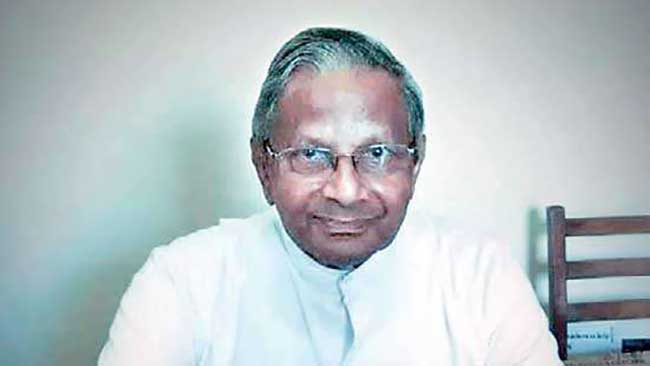
For a member of the Roman Catholic male clergy, the Ordination Ceremony that officially enrols him into his chosen vocation of priesthood is the glittering starting point of a journey in which he would be a chosen servant of God, entrusted with the task of being devoted to the religion of Catholicism while undertaking the mission of being dedicated to the service of mankind. The late Reverend Father Gerald Chrispin Leo was so ordained in Rome, Italy, by His Holiness Pope Paul VI, on a very cold 6th of January 1966.
In the life of a Catholic priest, the date of the Ordination Ceremony remains a most sacred event. From that day onwards, right up to the time he left this mortal world on the 12th of September 2022, Father Chrispin Leo has stood out as the epitome of an apostle of Christ and as a man who steadfastly and scrupulously honoured the sacred vow that he took at his ordination.
Rev. Fr. Chrispin Leo was the Chaplain/Spiritual Director of the Catholic Doctors’ Guild of Saint Luke and Saints Cosmas and Damian for 35 years. His contribution towards guiding the members of the guild is best described as splendid and legendary. He took that assignment as a pivotal voyage undertaken in the true spirit of bringing glory to the Almighty. He was responsible for the initial revival of the guild in the early seventies and then he led us for three and a half decades with charismatic dedication.
Reverend Father Chrispin Leo was profoundly respected and practically venerated by many while being most affectionately referred to by a whole lot of us in the guild as ‘Our Father’. Over many a decade, his pivotal contributions to the welfare of the Catholic Doctors’ Guild, as well as garnering general support for that organisation and the advocacy provided by him for its progression, were superb and priceless; c’est Magnifique, to say the least.
The Good Lord above has deemed it fit to summon this much-loved son of his, Reverend Father Gerald Chrispin Leo, to the eternal glory of a place in the kingdom of heaven. What else could we possibly envision for such a wonderful man whose sojourn on planet earth was just one of utmost devotion and undoubted commitment to the services he provided for the glory of the kingdom of God?
As for us, we do celebrate the life of this dazzling personality that was Reverend Father Chrispin Leo. He was indeed God’s humble messenger to all of us. The memories that we cherish are quite a legion, together with the images in our memory of a person who thoroughly enjoyed all social gatherings to the hilt. We do admire him for his simplicity and for being a renowned bridge-builder in all our activities. More than anything, he was a deeply admired friend to all of us, as a man who lived a full, beautiful and holy life and enjoyed his journey on planet earth with the fantastic grace of an angel.
We would most dearly miss his prudent, wise, sensible and gentle counsel. Yet for all that, we remain content in our firm belief, that our very dear Reverend Father Chrispin Leo has now received the bliss of eternal happiness. May this Prince of our holy faith rest in perpetual peace, very safe in the kingdom of heaven.
Farewell, our much-adored Reverend Father Chrispin Leo. We certainly would most sincerely, earnestly and eternally be craving for your illustrious company. That would be until we meet again in a different celestial world.
Dr B. J. C. Perera
Specialist Consultant Paediatrician
Opinion
Landslide victories
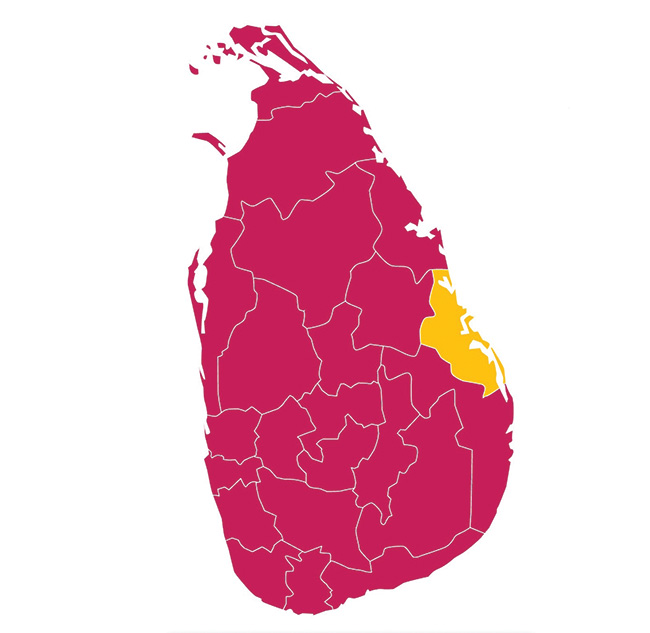
by Chula Goonasekera
Nagananda Kodithuwakku
President AKD and the NPP deserve applause and heartfelt congratulations for their organisation, information gathering, and dissemination of a vision that resonates with the people. They have successfully created an enormous wave of funding and support, culminating in a decisive victory over the corrupt factions that have contributed to the destruction of our nation and motherland. The NPP’s anti-corruption message resonated deeply with voters who have suffered across many sectors of society, including the economy, education, healthcare, and nutrition. The public trust generated by this movement has led to an exemplary landslide victory for the NPP in this general election.
However, as voters, we must remain mindful that Sri Lanka has witnessed landslide election results in 1970, 1977, 2010, and 2020—all of which ultimately resulted in a landslide toward the nation’s ill-being, leaving the country burdened with massive debts, corruption, indiscipline, brain drain, and economic collapse.
What is ironic in 2024 is that this landslide victory may be one of the most significant of the century. However, it also calls for critical reflection. For the first time, even Jaffna voted in favour of the NPP. This could indicate the beginning of the end of the divisive politics that have historically exploited racial and religious divisions. Perhaps this marks the dawn of a new, more unified political landscape—one that promotes a united Sri Lanka as one nation working toward an equal society across every corner of our motherland.
Despite the landslide, we must be fully aware of the potential for disinformation if proper actions and preventive measures are not taken. The constitutional gates of covert and overt political corruption remain open while, as a nation, we lack the compensatory capacity to face another political or financial crisis. Therefore, we must remain vigilant and ensure the continuity of national oversight to keep our new parliament and president on track despite the many distractions that could hinder their efforts for national freedom and development. One key strategy is to remain non-aligned but work with external forces through clear, transparent, and fair agreements that prioritise national benefit.
In this context, the priority for the NPP should be to make the Judiciary and the Bribery Commission independent, supported by a robust quality assurance system and a clear definition of ‘contempt of court’ to embed accountability. No national institution—especially the judiciary—can thrive without accountability and transparency. A recent example from the UK, the Post Office Scandal, underscores this point: a national service organisation made wrongful decisions that destroyed the lives of many innocent people, wrongly labelling them as criminals. A documentary exposing this injustice was widely circulated in the media, leading to justice for many victims, some of whom were no longer alive to witness it. In Sri Lanka’s current legal environment, such exposure could easily be misconstrued as contempt of court, with all involved potentially facing jail time.
An independent Judiciary and Bribery Commission, free from political interference, can be achieved through a parliamentary act requiring a two-thirds majority. This is paramount and should be implemented at the earliest opportunity to prevent politics from undermining legitimate processes. Such reforms will help resolve the deadlock that has stifled progress—particularly in addressing political corruption, including linked severe offences such as rape and murder. Furthermore, these reforms will clarify the constitutional changes necessary to prevent the legitimisation of political corruption, enabling the cleanup of a constitution that has been manipulated countless times to allow corrupt politicians to act with impunity despite blatant violations of good governance.
Opinion
Srinivasan believed in Sri Lanka’s true potential: An appreciation
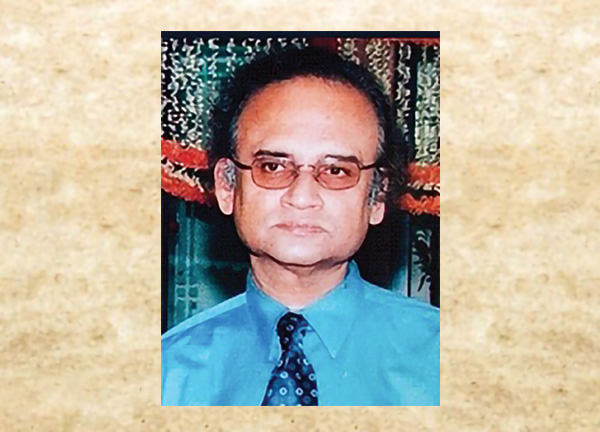
Historical ties between Sri Lanka and India date back to the Ramayana era and the visionary missions of the Great Mauryan Emperor Ashoka. The emperor tasked his own son, Arahant Mahinda, and daughter, Bhikkhuni Sangamitta, with spreading the teachings of Gautama Buddha (dhamma), laying the foundation in the island nation of Lanka, probably visualising its potential in cultivating a unique culture.
In 1977, Sri Lanka opened its economy while our great neighbour India had a closed economy. The Indian Bank, a wholly owned entity of the Government of India, decided to set up the bank’s first offshore banking unit in Sri Lanka. The unit became the first Foreign Currency Banking Unit (FCBU) owned by a foreign bank in Sri Lanka and started operations in 1979.
The bank appointed the young banker V Srinivasan to head the FCBU unit in Colombo, which led to many transformational changes in banking and entrepreneurial relationships between the two countries. Late V Srinivasan had the rare opportunity to leave his footprint, being the only officer serving as the CEO of Indian Bank’s two overseas branches in Sri Lanka and Singapore.
The Indian Bank’s FCBU unit raised foreign currencies and arranged investments in the Katunayake Free Trade Zone and several other BOI-approved projects. Under Mr. V Srinivasan’s leadership, many projects were financed, including the first multi-purpose apartment and shopping complex in Kollupitiya, and value-added rubber and textile manufacturing projects in the Free Trade Zone in Katunayake. These projects enabled industrial technological know-how to flow into Sri Lanka. The Indian Bank recognised V Srinivasan’s leadership and promoted him to the bank’s CEO in the Colombo branch in 1985, thus managing the bank’s decades-old domestic operations specialising in international trade. During this period, he identified the true potentials in the Sri Lankan economy, such as financing value addition and branding of Ceylon Tea, and financing the construction of a glass-bottomed multipurpose boat as a tourist attraction.
Unfortunately, all the innovative projects came to a grinding halt with the July 1983 riots in Sri Lanka. Although the bank’s assets were subject to many risks impacting viable operations, V Srinivasan demonstrated his kindness by saving the bank’s vital intellectual capital, the human resource, from destitution and distress because of the ruthless communal riots in Sri Lanka. His passion for spotting talent and his caring attitude towards the well-being of staff probably made him the bank’s youngest General Manager, leading Human Resources prior to his retirement from the bank in 2011.
This writer was fortunate enough to sense and learn the social orientation of the business of banking as a budding banker under his stewardship. During his tenure, I had the opportunity to engage in negotiations as a young trade unionist. Our friendship continued even after both of us left the services of the Indian Bank for many decades. The last time I met Mr. V Srinivasan, his wife Kalpana, and his son Prasanna and family was while he was holidaying in Sri Lanka in 2010, catching up with beautiful memories. Mr. Srinivasan passed away at the age of 73 on 9th November 2024 in Chennai. May his departed soul rest in peace. Om Shanti.
Jayasri Priyalal
Opinion
‘Ethnicity’ can no longer ‘hold voter’
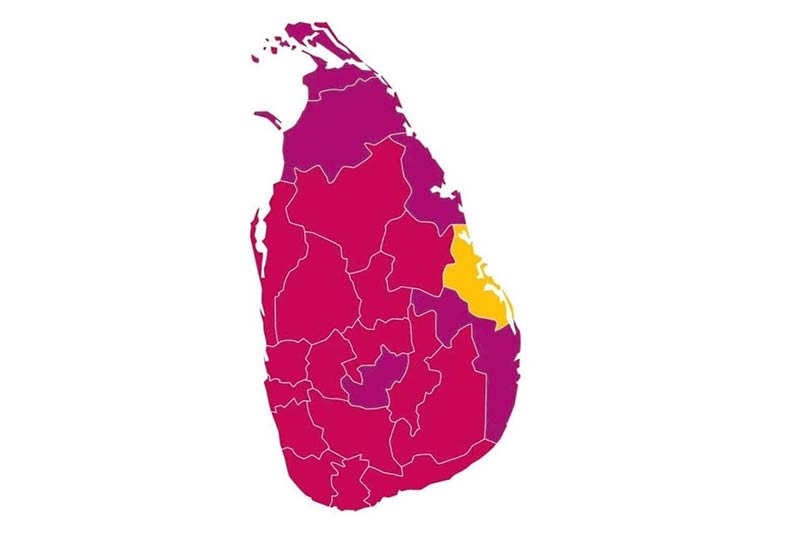
“Even in the modern world which, due to advancement in Science, has all the opportunities for comfortable living, man has to suffer because of this disease of nationalism and its inevitable political tentacles.”– Dr E.W. Adikaram
by Susantha Hewa
It’s hard to find in history instances where people in their numbers have cast off their outer shell of ethnicity (as well as religion) to change systems. It goes without saying that people enjoy an immense sense of fellow feeling when they jointly celebrate victories of cricket and other triumphs. However, the results of the recently concluded parliamentary election clearly showed people from all Tamil dominated Northern districts and Muslim dominated Eastern districts coming together spiritedly to back the NPP from the Sinhala dominated South. They have joined hands against their perceived political oppressors- which is nothing short of spectacular, given the obstinacy of our ethnic and other prejudices.
Sri Lanka has set an example of the above rare feat at the recent general election. It’s reassuring that many Sri Lankans are awakening to the reality that ethnicity is a veneer largely of a cultural and political making and not of biological making as we are generally made to consume. Most scientists agree that ethnicity is not a biological category but a socially constructed identity. Modern research demonstrates that the concept of race/ethnicity is a social construct without any scientific basis.
According to medical researchers A. Smedley and B.D. Smedley, people generally think that “population differences in health and intelligence are the result of immutable, biologically based differences between ‘racial’ groups, despite overwhelming evidence that racial groups are not genetically discrete, reliably measured or scientifically meaningful”. Enthusiastic believers of ethnic differences have their work cut out to disprove a substantial body of scientific evidence against ethnicity being a biological category. The fact is, our culturally constructed and politically pampered bigotry about ethnicity has been proving too resilient for insights from science slowly trickling down to our collective consciousness.
After all, scientific knowledge cannot be imposed on you like ‘ethnicity’ or religion; nor can it be made politically expedient to keep people in ignorance. The anthropologist, Prof. Robert Wald Sussman says “Being antiracist is not simply political correctness, it is proven science” (The Myth of Race: The Troubling Persistence of an Unscientific Idea). At last, Sri Lanka’s parliamentary democracy, tested rigorously at a general election, has proved to be a measure of the progressivity and the political awakening of a fragmented populace and served as a valuable precursor of unity rather than division. Most importantly, it has stumped many of those who are still charmed by the supposed imperishability of the deep-rooted perception of ethnicity. All those who wish to see the blossoming of an enlightened community without self-debilitating and inherited biases, the November 14 election will be a cultural awakening, if not a significant turning point in politics.
The age-old myth of ‘ethnicity’ being synonymous with “language” can no longer hold water. Language is the finest medium of human communication and it can do very well without acquiring any unintentional indignity of interlanguage enmity. As languages, there is no conflict between languages, i.e. English, Mandarin, Hindi, Spanish, Tamil, Sinhala, Bengali, Urdu, Ainu, Njerep or even Lemerig, no matter how widely or sparsely they are spread and spoken. Languages keep enriching one another by mixing with and borrowing from (no obligation to return) the others.
However, unfortunately, we, who have no choice but acquiring the language of our parents or the guardians, often grow up with the false idea of being distinctly different from those who speak other languages, which is tragically misunderstood as being rooted in genetics. It is heartening that history has instances, however rare, of proving such tenacious myths untenable. The recent election is a case in point.
All those who have transcended their socially inherited biases in showing their unity to halt sociocultural and political stagnation of a nation have done Sri Lanka proud. It shows their political acumen sharpened primarily by economic woes. It is no mean feat for individuals in a society to have overcome the alluring biases they are steeped in, be they religious, caste-based or ethnic – the cast-iron biases that lull us into a false sense of belonging while actually alienating us from others for imagined differences.
In his book ‘Annihilation of caste’, Dr. B.R. Ambedkar, who was a fierce critic of the caste system in India, writes, “Brahminism… is the very negation of the spirit of Liberty, Equality and Fraternity”. And, commenting on Dr. Ambedkar’s statement above, Arundhati Roy, an admirer of Dr. Ambedkar, says, “Brahminism precludes the possibility of social or political solidarity across caste lines. As an administrative system, it is pure genius” (The doctor and the saint). What both of them condemn as deeply harmful is the flourishing of entrenched biases when they are interlaced with politics, where the connections may be apparent or more devious than meets the eye. As many would agree, Brahminism may perhaps not have been unique in strangling the life and freedoms of people in human history, with the complicity of repressive systems of governance. Skin colour, race, ethnicity, religion – all have been equally capable of being subjugated by politics to keep the people in prolonged servitude.
Let’s hope that, in Sri Lanka, as well as in other parts of the world, there will be a gradual diminution of equally incapacitating biases, which would otherwise continue to keep the masses in their deadly grip, thus hampering their progress towards civilsation.
-
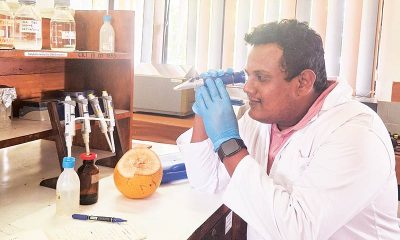
 Life style2 days ago
Life style2 days agoKing of coconuts heads for a golden future
-
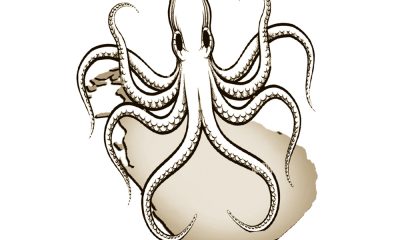
 Features6 days ago
Features6 days agoAdani’s ‘Power’ in Sri Lanka
-
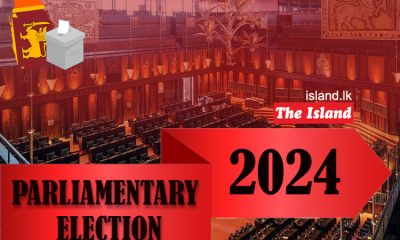
 Latest News4 days ago
Latest News4 days agoColombo district preferential votes announced
-
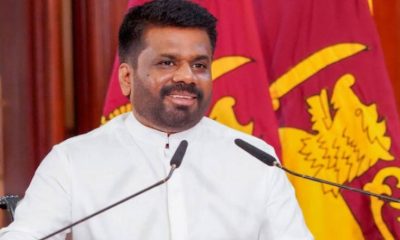
 News3 days ago
News3 days agoPresident warns his party: “We will fail if we view power as an entitlement to do as we please”
-

 Editorial6 days ago
Editorial6 days agoWhen millers roar and Presidents mew
-
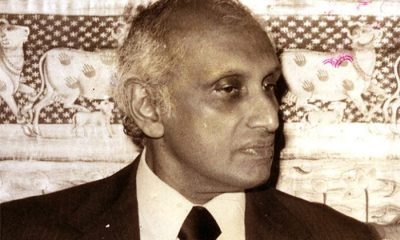
 Midweek Review6 days ago
Midweek Review6 days agoGamani Corea:
-
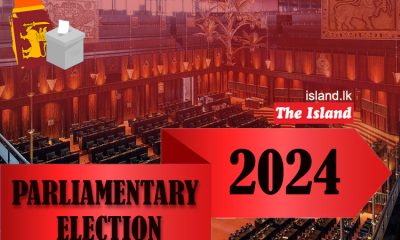
 Latest News4 days ago
Latest News4 days agoGampaha district: NPP 16, SJB 3
-
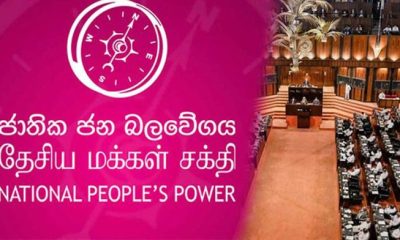
 News1 day ago
News1 day agoNPP appoints two defeated candidates as NL MPs











